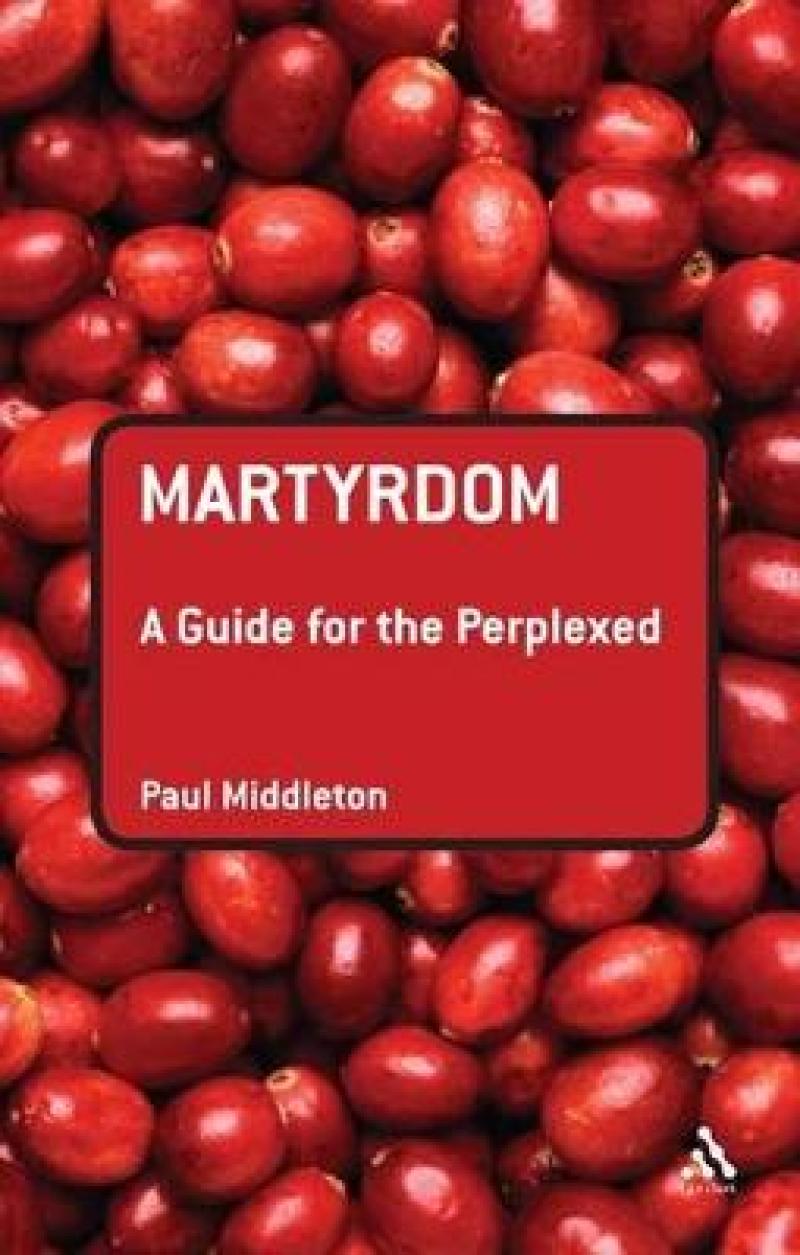It can be said, almost without exaggeration, that martyrdom has become one of the most pressing theological issues facing the contemporary world. Since the attack on the World Trade Center in 2001, the world has had to face up to an Islamic manifestation of martyrdom. Martyrdom has a long history; as long as individuals have been dying for their faith or cause, others have been telling and more importantly, interpreting their stories. These martyrologies are essentially conflict stories. Whether a Christian confessing her faith before a bemused Roman governor, or a suicide bomber blowing himself up in a crowed cafe in Jerusalem, the way these stories are recounted - positively or negatively - reflect a wider conflict in which the narrator and his community find themselves. Martyr narratives, whether textual, oral, or even a CNN news report, do more than simply report a death; they also contain the interpretative framework by which that death is understood - again positively or negatively. When the death of a martyr is reported, the way in which that story is told places that death within a larger narrative of conflict, which may be regional, global, or even cosmic.
The martyr becomes a symbol of the community's desires and hopes, or for that matter, their terrors and fears, but in either case, the martyr is representative of a larger struggle, and often martyrology contains the vision of how the community envisages final victory over their enemy. This book aims to illuminate the way these conflict stories have been told and function (principally, though not exclusively) within Christian, Jewish, and Islamic communities. Continuum's "Guides for the Perplexed" are clear, concise and accessible introductions to thinkers, writers and subjects that students and readers can find especially challenging - or indeed downright bewildering. Concentrating specifically on what it is that makes the subject difficult to grasp, these books explain and explore key themes and ideas, guiding the reader towards a thorough understanding of demanding material.
Les mer
Martyrdom has a long history; as long as individuals have been dying for their faith or cause, others have been telling and more importantly, interpreting their stories. This book aims to illuminate the way these conflict stories have been told and function (principally, though not exclusively) within Christian, Jewish, and Islamic communities.
Les mer
I Introduction; II The Origins of Martyrdom; III Martyrdom in Christianity I: The Early Church; IV Martyrdom in Christianity II; V Martyrdom in Judaism; VI Martyrdom in Islam; VII Hearing the story: Understanding Martyrdom.
Les mer
Martyrdom is an educational and informative look at the concept of martyrdom through the understanding of the Abrahamic faiths, and would no doubt be enjoyed by those looking to further their knowledge of this subject.
Les mer
It can be said, almost without exaggeration, that martyrdom has become one of the most pressing theological issues facing the contemporary world.
Sheds some light on a much misunderstood topic.
Bloomsbury's Guides for the Perplexed are clear, concise and accessible introductions to thinkers, writers and subjects that students and readers can find especially challenging - or indeed downright bewildering. Concentrating specifically on what it is that makes the subject difficult to grasp, these books explain and explore key themes and ideas, guiding the reader towards a thorough understanding of demanding material.
Les mer
Produktdetaljer
ISBN
9780567032188
Publisert
2011-06-02
Utgiver
Vendor
T.& T.Clark Ltd
Vekt
300 gr
Høyde
216 mm
Bredde
138 mm
Aldersnivå
UU, 05
Språk
Product language
Engelsk
Format
Product format
Heftet
Antall sider
224
Forfatter
